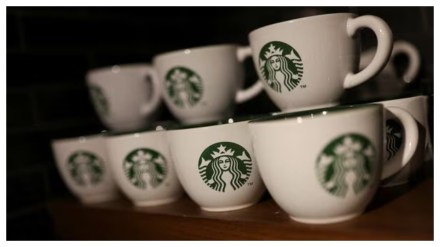Starbucks workers’ union, representing more than 10,000 baristas, initiated a five-day strike on Friday, citing unresolved issues related to wages, staffing, and schedules. Initially impacting Starbucks stores in Los Angeles, Chicago, and Seattle, the strike is now expanding to Columbus, Denver, and Pittsburgh.
The union, Workers United, plans to escalate the walkouts, potentially involving “hundreds of stores” nationwide by Christmas Eve. The strike comes during the busy holiday season, amplifying its potential impact.
Growing Labor Action Across Industries
The Starbucks strike is part of a broader wave of labour actions across the US, where service and manufacturing industry workers have recently secured significant concessions from employers. Workers United represents employees at 525 Starbucks stores nationwide, making it a key player in this ongoing labour movement.
Starbucks stated that only about 10 of its 10,000 company-operated stores were forced to close due to the strike on Friday, asserting minimal impact on operations. However, unionised workers in cities like Chicago described strong participation, with all union members at certain locations joining the strike.
Picket lines, like the one in Chicago’s Edgewater neighbourhood, drew support from passersby, although some customers were confused by the closures.
Workers Claim Unfair Practices and Low Wages
Striking workers have reported unfair labour practices, including unwarranted disciplinary actions, “captive-audience” meetings, and firings. Baristas argue that their current wage of approximately $21 an hour is insufficient, especially in high-cost cities, given inflation and limited work hours.
One union member described the wage as outdated, saying, “That would have been a great wage in 2013.”
Negotiations between Starbucks and Workers United began in April under a February framework aimed at resolving disputes. Starbucks claims it has held more than nine bargaining sessions and reached 30 agreements.
However, the union argues that the company has yet to present a serious economic proposal and rejected an offer of a 1.5% per cent wage increase in future years. Workers United has called for an immediate 64 per cent wage hike, rising to 77 per cent over a three-year contract, which Starbucks described as unsustainable.
Legal Disputes and Allegations
The union filed a new labour practice charge on Friday, accusing Starbucks of refusing to bargain in good faith over economic issues. Hundreds of similar complaints have been lodged with the National Labor Relations Board (NLRB), alleging unfair labour practices, including firing union supporters and closing stores during labour campaigns.
The NLRB recently ruled that Starbucks violated the law by threatening workers at its flagship Seattle store with the loss of benefits if they unionised. Starbucks denies these allegations and maintains it respects workers’ right to unionise.
Holiday Timing Magnifies Impact
The strike coincides with one of the busiest periods of the year for Starbucks, potentially magnifying its impact and increasing scrutiny of the company’s labour practices. Rachel Wolff, an analyst at Emarketer, noted that the timing could hurt Starbucks’ sales and reputation as it undergoes a turnaround under its new CEO, Brian Niccol.
Broader Context of US Labor Movements
The Starbucks strike comes in the same week that Amazon workers staged walkouts at seven US facilities, highlighting the growing momentum of labour actions across industries. Data from the US Bureau of Labor Statistics shows 33 work stoppages in 2023—the highest since 2000.
With the strike set to expand and escalate through Christmas Eve, the Starbucks labour dispute underscores the growing push for fair wages and working conditions across the US service industry. The outcome could set a precedent for other companies grappling with unionized workforces.
